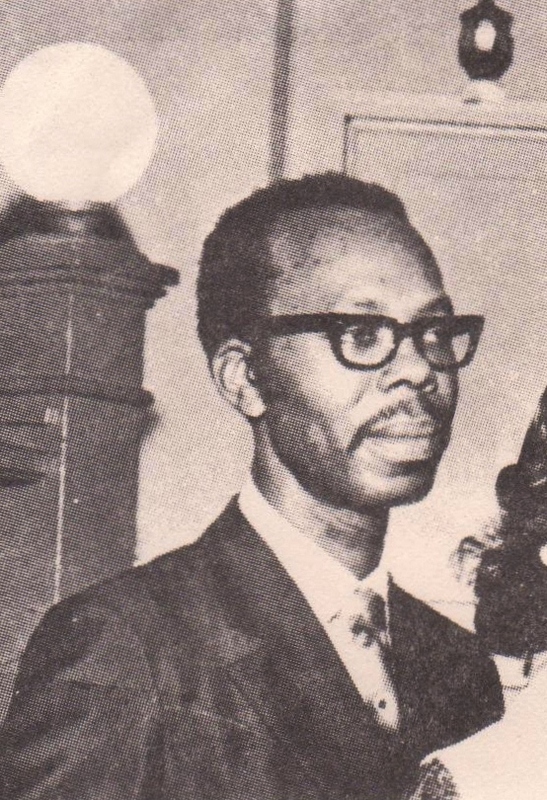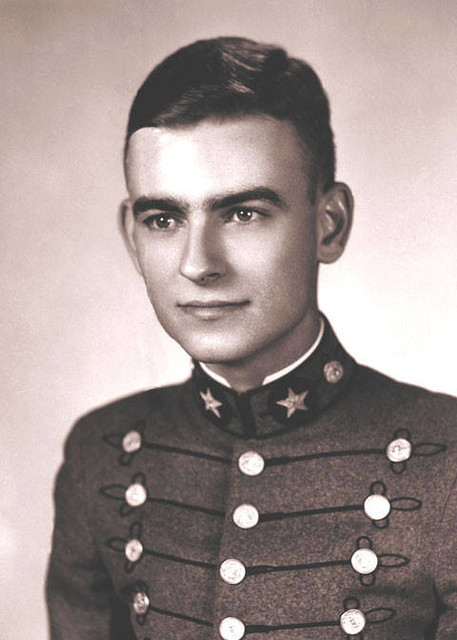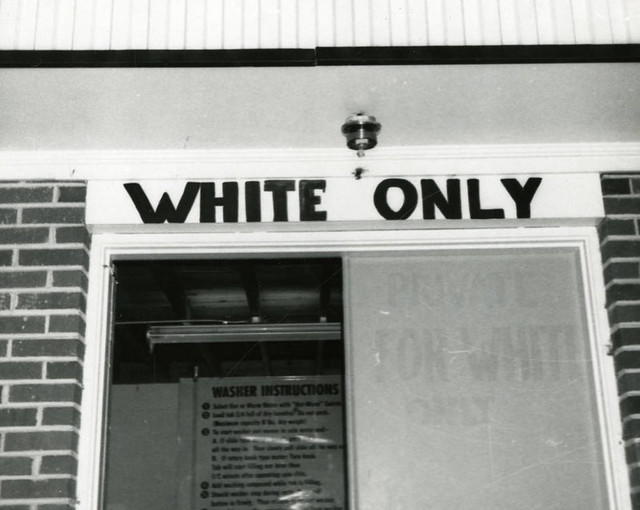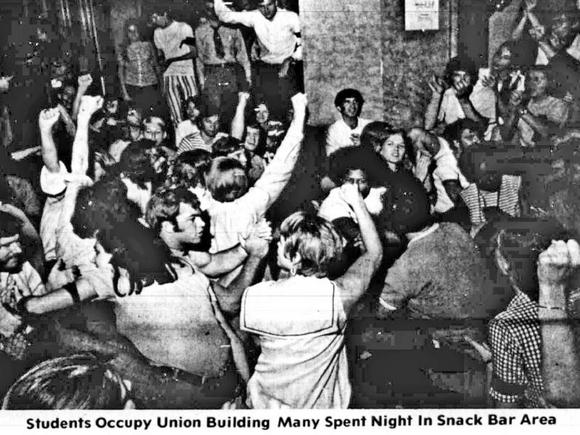Interviewed by Katie McCary
Mr. Drake grew up in Gardendale, Alabama during the 1950s. Throughout his childhood, Mr. Drake spent most of his time playing outdoors with his sister and enjoying the small-town life that Gardendale offered. When Mr. Drake was around eight years old, he began to develop an interest in the popular 1950s sitcom “Perry Mason.” This show featured the antics of a prominent defense attorney and immediately drew Mr. Drake to the future career goal of becoming a lawyer. Neither of Mr. Drake’s parents graduated from high school and were both very supportive of any career goal that would propel him to attend college. He began his undergraduate career at the University of Alabama in the early 1960s.
As Mr. Drake got older, he became less influenced by Perry Mason and more driven by the ongoing civil rights battle in the United States as well as the Vietnam War protests. While still an undergraduate student, Mr. Drake formed UA’s Democratic Students Organization. The formation of the DSO came with the intent to provide more radical students with a more conservative alternative to the national Students for a Democratic Society movement. Mr. Drake remembers the political and cultural climate of UA’s campus at the time as being “pretty conservative, very white, and very homegrown,” with most students coming to Tuscaloosa from Alabama cities. As such, the SDS would not have gone over well on UA’s campus. Even the simple peace vigils organized by the DSO put Mr. Drake on the radar of some very powerful people. Every Friday at noon, the DSO would stand silently on the steps of the Union building for 15 minutes. According to Mr. Drake, this non-violent form of protest brought out news media and police agencies from all across the state of Alabama.
Russell Jack Drake
“You would think that we had burned 20 flags or something. I mean, we would just stand there. It started out that there were 20 or 30 of us and then it got to be 100 or so. News media from all over the state of Alabama, from Atlanta, regional news organizations would come and film us. And every police agency in the state had people there watching us. FBI, state troopers, Alabama Bureau of Intelligence, the National Guard had some intelligence officers there. Every time I ever did anything for two years those guys were there.”
The above quote from Mr. Drake highlights just one small instance in which he was closely monitored by media and police agencies alike. Mr. Drake recalled a story that he once gave to an interviewer writing for the Anniston Star in which he tells of the time he first met then-Governor George Wallace. According to Mr. Drake, he attempted to introduce himself to Governor Wallace upon first entering the room. Rather than letting him finish, Governor Wallace simply told Mr. Drake he already knew who he was–he had seen more pictures of Mr. Drake than he had of his own children (Pockstaller). While reflecting on this story, Mr. Drake began to describe a group called the Alabama Legislative Commission to Preserve the Peace. This group would follow Mr. Drake around constantly, both in relation to his activities with the DSO and in his regular life. Despite the intimidation and fear this may strike into others, Mr. Drake simply saw this as an annoyance. Ultimately, he was able to sue the Legislative Commission to Preserve the Peace and put them out of business.

Mr. Drake graduated from the University of Alabama School of Law in 1969. At this point in his life, Mr. Drake had been heavily affected by ongoing antiwar movements and civil rights issues in his own city of Tuscaloosa. On June 9, 1964, just a month before Congress would pass the Civil Rights Act of 1964, Reverend T.Y. Rogers Jr. organized a peaceful protest to stand up to then-Governor George Wallace’s “Stand in the Schoolhouse Door” movement meant to prevent integration. Reverend Rogers gathered protesters at the First African Baptist Church with the intent to peacefully march to the new Tuscaloosa County Courthouse. Instead, Tuscaloosa police officers met them at the church and incited a violent outbreak that resulted in 33 protesters being hospitalized and 94 being arrested (Slowe). “Bloody Tuesday” heavily influenced Mr. Drake’s career goals.

Other civil rights interactions and incidents influenced Mr. Drake alongside “Bloody Tuesday.” As a law school student, Mr. Drake closely interacted with professors who were trailblazers in civil rights and women’s rights at the time. One of these professors was an attorney by the name of Roy Lucas, who later went on to draft principles that lead up to the infamous Roe v. Wade case. Additionally, Mr. Drake was heavily affected by the murder of young civil rights activist Jonathan Daniels. Daniels had been recently released from a county jail in Hayneville, Alabama along with one other white civil rights protester and two young black female protesters when he was murdered. Daniels died trying to shield one of the young black protesters, Ruby Sales, from the shotgun of Tom Coleman, an unpaid special deputy in Hayneville. The protesters had been arrested for fighting against segregated public places and attempting to register black voters in the state of Alabama. They had simply been trying to enter a corner store that traditionally served all races when they were attacked (Mosnier). It was tragedies like these that propelled Mr. Drake to make drastic changes in Alabama.

Photo taken by Jonathan Daniels in AL via VMI Archives
Shortly after graduating from law school, Mr. Drake began working at a civil rights organization known as the Selma Inter-religious Project. The Selma Project was formed shortly after the Selma march of 1965 and Mr. Drake was brought on board in order to help provide legal services to those continuing to fight for civil rights. Mr. Drake was still working closely with the Selma Project when the Days of Rage broke out on the University of Alabama’s undergraduate campus. Following the shootings at Kent State University on May 4, 1970, the Tuscaloosa Women’s Movement organized what was meant to be a memorial service for those killed at Kent State and in Vietnam. After escalations between protestors and police officers, the memorial service quickly erupted and resulted in a 13-day protest on UA’s campus that ended in martial law. The protests saw the occupation of the SupeStore in the Alabama Union Building (now the Ferguson Center) and the burning down of an unoccupied building called Dressler Hall. Following the protests, over 200 students were arrested for their organization and involvement. Mr. Drake was not an active participant in the protests, but he was prepared to provide legal aide for any students that were.

Russell Jack Drake
“They arrested everybody. Once the campus was placed under martial law, if you didn’t do what the police told you, you got arrested. Lots of people were arrested for basically nothing.”
According to Mr. Drake, after the civil rights movements both in Birmingham and Selma, the state of Alabama passed a statute specifically to deal with mass demonstrations. The catch-all was failure to leave an unlawful assembly. If even as few as 50 students organized a demonstration, any state trooper could declare the assembly unlawful. At that point, participants would have a few minutes to leave and all those remaining would be arrested. This is what the majority of students who had been arrested during the Days of Rage were charged with and Mr. Drake was fully prepared to fight back against these charges. His primary strategy was to force the Tuscaloosa court system to try each and every protestor who was arrested during this time. This strategy proved highly effective as Mr. Drake and his partners were able to get every protestor out of their charge. Ultimately, the Tuscaloosa police department and county court office went through significant positive improvement following the horrors of UA’s Days of Rage.
Mr. Drake made it clear that this is not the only example of the corruptness that plagued both the Tuscaloosa court system and the Tuscaloosa police department during this time. While working with arrested students from the Days of Rage as well as civil rights activists that were connected with Mr. Drake through the Selma Project, he encountered several faulty if not outright illegal charges issued by TPD. Two of these charges were known as “FOPO,” failure to obey a police officer, and “DNS,” dangerous and suspicious. According to Mr. Drake, neither of these so-called charges were actually listed in the Alabama criminal code. Alongside his work with and participation in Vietnam War protests, Mr. Drake also put an end to several shady, illegal, and unfair practices being performed by various Tuscaloosa institutions.
Russell Jack Drake
“I put a stop to a lot of things that were going on and the police department began to dramatically change. They hired a new chief, they began to recruit people who had college degrees. The level of competence and the level of training in the police department went up dramatically because of what happened in May 1970.”
When asked if he feels as if the Vietnam War protests that he participated in made a significant difference on the outcome of the war, Mr. Drake’s answer is firm. He believes the protests–both the ones he organized and participated in and the ones across the nation–ended the war. Mr. Drake felt little fear as he walked the dangerous line between doing what he thought was right and doing what the government wanted him to do. He claims that when you’re on the right side of history, it’s hard to be scared of those on the wrong side.
“If you have the big moral questions that face American society and you’re on one side and you think, ‘By God, we’re right,’ then fear becomes kind of secondary.”
Transcript
Interview Audio
Further Reading
- Days of Rage: America’s Radical Underground, the FBI, and the Forgotten Age of Revolutionary Violence by Bryan Burrough
- The Girl in the Picture: The Story of Kim Phuc, the Photograph, and the Vietnam War by Denise Chong
Citations
- Mosnier, Joseph. “Ruby Nell Sales oral history interview conducted by Joseph Mosnier in Atlanta, Georgia, 2011-04-25.” Library of Congress.
loc.gov/item/2015669106/. Accessed April 10, 2019. - Kludy, Mary. “Jonathan Daniels in Alabama, 1965.” Virginia Military Institute. vmi.edu/archives/online-exhibits/jonathan-daniels-in-alabama1965/. Accessed April 10, 2019.
- Slowe, Betty. “T.Y. Rogers, 1935-1971.” Tuscaloosa Area Virtual Museum. https://tavm.omeka.net/exhibits/show/african-american-history/item/50. Accessed April 10, 2019.
- Pockstaller, Ben. “Alabama’s civil-rights-era ‘Peace Commission’ spied on people who opposed segregation, had ‘leftist’ views.” The Anniston Star. https://www.annistonstar.com/free/alabama-s-civil-rights-era-peace-commission-spied-on-people/article_3fe9d724-7a22-11e7-91a0-1bae5aa9c7cf.html. Accessed April 10, 2019.